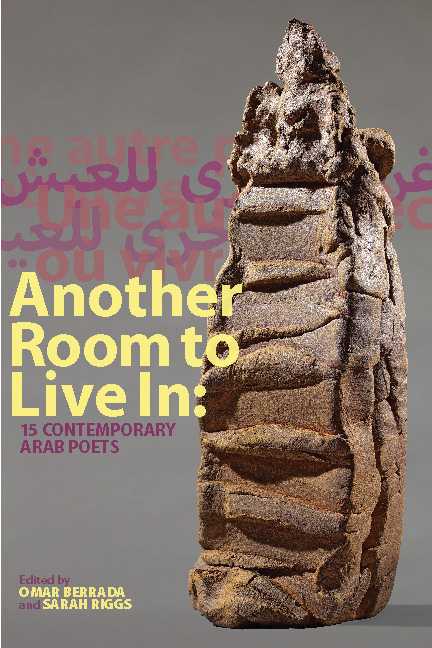

Another Room to Live In: 15 Contemporary Arab Poets
Another Room to Live In is an archive of encounter: a multilingual conversation between fifteen poet-translators, connected through friendship, correspondence, and cross-diasporic gatherings. With work in English, Arabic, and French, the collection moves beyond both language and nation-state, investing instead in transcontinental dreamspaces. Here, translation practices collaboratively transform the poems and reflect the poets’ own experiences of “living” in multiple languages. Complicating any flat conception of identity, the poems presented here seek to revisit and challenge foundational narratives, to rework mythologies, and to do all this through a cross-generational process of translation as poetic communion. Contributors include: Etel Adnan, Hoda Adra, Sinan Antoon, Mirene Arsanios, Omar Berrada, Sara Elkamel, Soukaina Habiballah, Marilyn Hacker, Golan Haji, Kadhim Jihad Hassan, Pierre Joris, Mona Kareem, Souad Labbize, Rachida Madani, Alisha Mascarenhas, Iman Mersal, Aya Nabih, Sarah Riggs, Yasmine Seale, Cole Swensen, Habib Tengour, and Sam Wilder.
Purchase from Litmus Press here
Feb. 15, 2024 978-1-933959-63-4 | $24 | 304 pp.
This trilingual experimental collection brings together an impressive array of contemporary Arab poets and literary translators. Here, notions of home, movement, and translation are evoked time and again, only to be called into question and reconfigured. These disparate texts—originals and translations—are united by their humanity and compassion, and by their refusal to turn away from the harsh realities of the day and age. This is a book that cuts to the core of what it means to be human.
—Kareem James Abu-Zeid
Another Room to Live In is an addictive and pertinent experiment that reimagines the potentials of translation as simultaneity, collaboration, friendship and deterritorialization, with blind spots and purposefully loose ends. This is not, the editors remind us, an anthology—since anthologies claim so often to represent, define or simplify—but instead a mirrored conversation, a record of conversations, a glimpse into the diasporic visions and ironies of Arab poets and their translators, legends and innovators calmly trilingual across Arabic, English and French. The book exudes the sense of being both an instant classic, a model that will endure for collectives to come, and, equally, elusive, fugitive, ephemeral, so much of our moment in time and space.
—Vivek Narayanan

